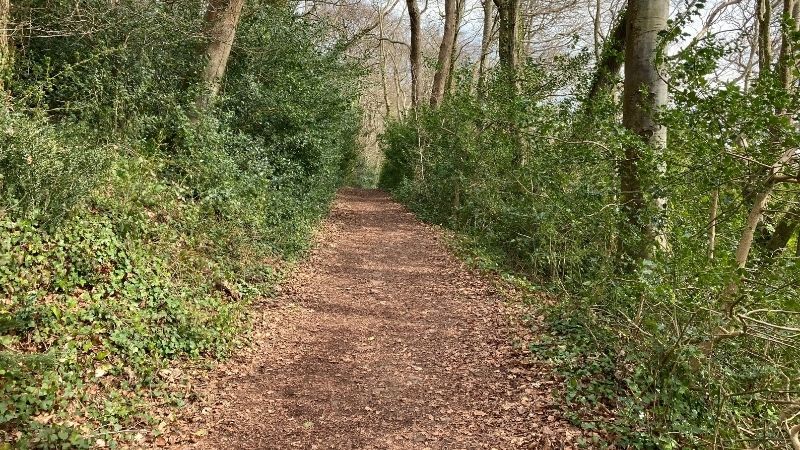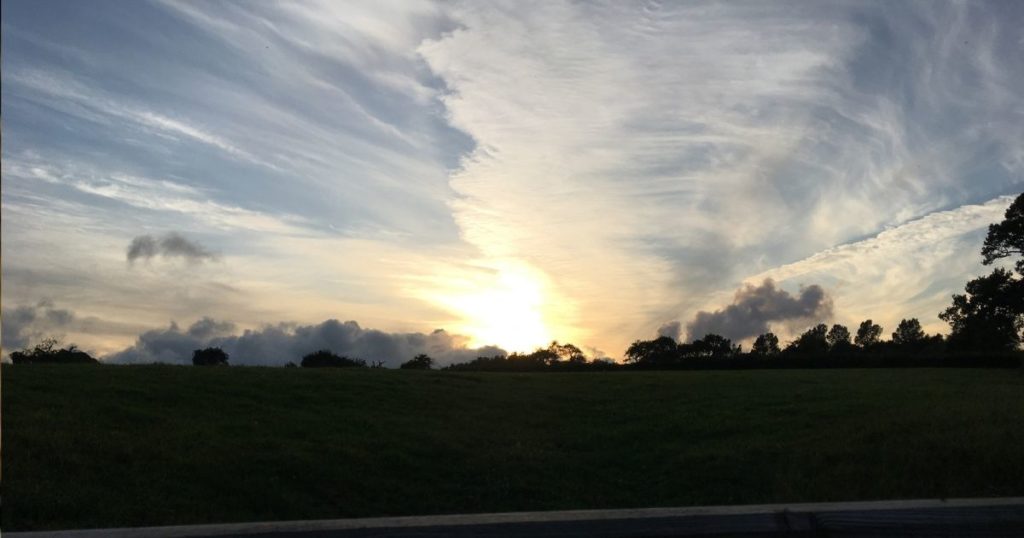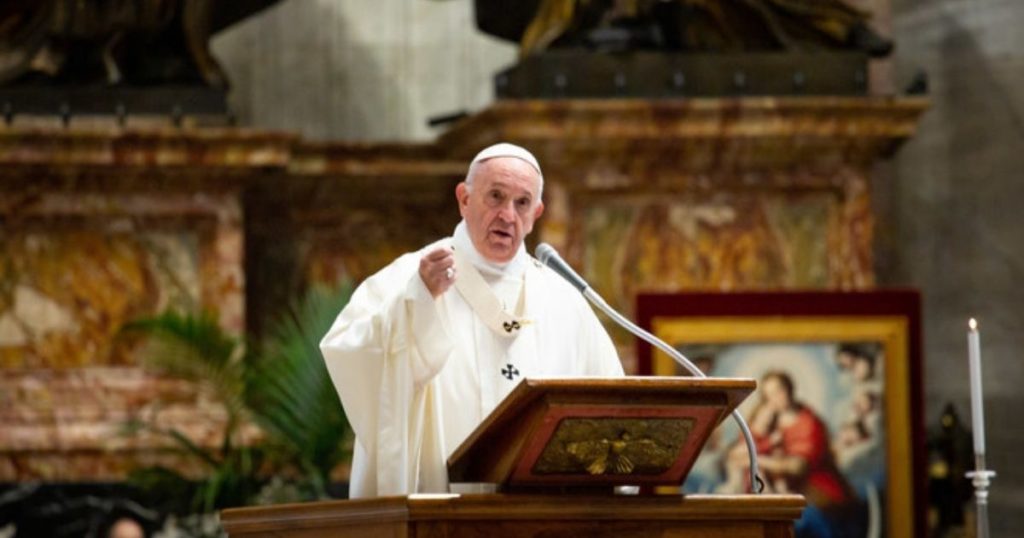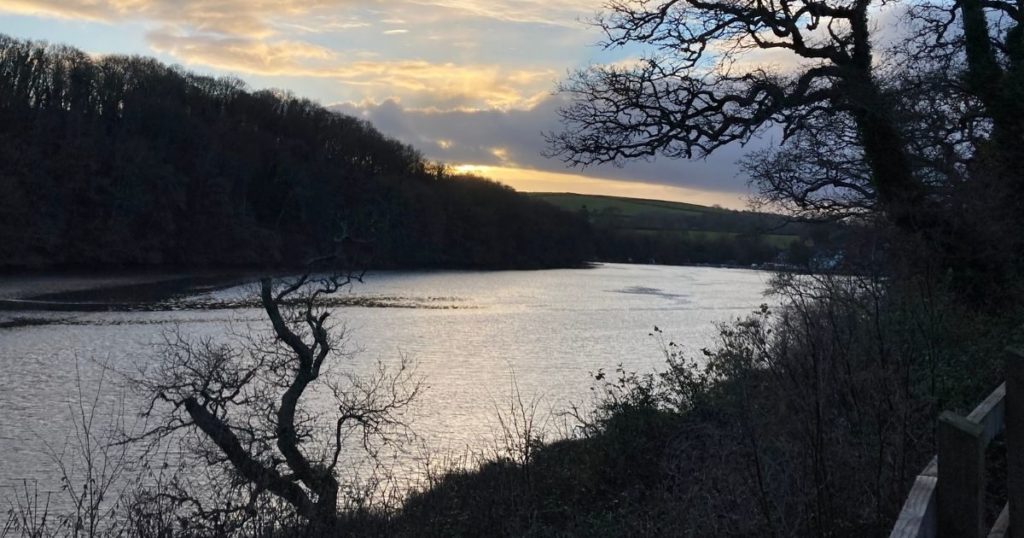The power of contemplation

CAFOD’S Jenny Hayward-Jones reflects on what has sustained her hope during the Covid-19 pandemic.
We began this year much as we have the last two years. The metaphorical storm clouds gathered and once again, we felt powerless, awaiting changes to scientific advice and government instructions – readying ourselves to alter our plans again.
I remembered the last time I felt not only powerless but truly afraid during this pandemic era – in March 2020 – and I remembered what had helped me overcome that feeling.
Come into the light

On 27 March 2020, our Holy Father Pope Francis delivered the most extraordinary moment of prayer and Urbi et Orbi blessing in St Peter’s Square. He invoked the Gospel of Mark, chapter 4. The disciples were in a boat with Jesus and caught in a storm. The Lord was sleeping and the disciples were frightened. When the Lord woke he calmed the storm and said to his disciples, “Why are you afraid? Have you no faith?”
Pope Francis said:
“Lord, in this world, that you love more than we do, we have gone ahead at breakneck speed, feeling powerful and able to do anything…we did not stop at your reproach to us, we were not shaken awake by wars or injustice across the world, nor did we listen to the cry of the poor or of our ailing planet. We carried on regardless, thinking we would stay healthy in a world that was sick. Now that we are in a stormy sea, we implore you: ‘Wake up, Lord.’
Lord, you are calling us to faith…your call reverberates urgently: ‘Be converted!’, ‘Return to me with all your heart.’ You are calling us to seize this time of trial as a time of choosing. It is not the time of your judgement, but of our judgement: a time to choose what matters and what passes away, a time to separate what is necessary from what is not. It is a time to get our lives back on track with regard to you, Lord, and to others.”
For me this was a moment of kairos. What does this mean? I had heard this word “kairos” before the pandemic started, but it was one of those theological concepts I had never quite understood. I researched and found that the ancient Greeks distinguished between two kinds of time: chronos - chronometric time - the familiar flow of time that we measure in minutes, hours, days and years; and Kairos – a moment in which something of dramatic importance occurs or an opportune moment.
Pope Francis’ words, set against the drama of that evening in Rome, revealed to me a way out of fear and darkness and into the light. This kairos moment crashing into the chronos transformed the way I thought about the pandemic, strengthened my faith and showed me how to look for the light, to see Christ’s presence, to remember the Lord is near. The Holy Father encouraged me to choose what matters. I was not powerless. There were actions I could take to make the world a tiny bit better for others.
Take action for a better world by joining CAFOD’s Lent walking challenge
Contemplation

As we entered this new phase of the pandemic in December, I needed help again. I re-read the Holy Father’s catechesis , Healing the World, which first captured my attention when I watched it being delivered over successive Wednesday Papal audiences in the summer of 2020. In the seventh part of that teaching, Pope Francis tells us that to emerge from the pandemic, we need to look after and care for each other and our common home. He said the “best antidote against the misuse of our common home is contemplation.”
I had always thought I was not well suited to contemplation. I’m too impatient, too practical. At retreats, when instructed to close my eyes in contemplation, I drifted off to sleep.
I realise now that Pope Francis’ teaching must have sunk in when I heard it the first time. He said “we need to be silent, we need to listen, we need to contemplate. When we contemplate, we discover in others and in nature something much greater than their usefulness. The contemplative in action tends to become a guardian of the environment. Contemplating and caring are two ways to correct, re-balance and heal our relationship with creation.”

I am lucky to live in a rural area and since I have been working from home, try to walk for 30 minutes by the river and through woodlands every morning. At first this was for exercise but then I started to use my time walking deliberately to silently contemplate nature, to look for the light and reflect. I thought about how I could heal my relationship with creation and realise my own ecological conversion; how I could demonstrate my care for our sisters and brothers everywhere.
I noticed the changing colour of the sky as the days drew shorter and then longer again, took pleasure in the pink camellias that bloomed in February and in the sound of the red autumn leaves that I crunched under my feet, observed the ripples on the millpond when the wind picked up, and smiled at the little cygnets who turned up on the river one day with the duo of swans that visited regularly. I looked to the heavens for the light that was always there.
A beautiful reflection that I could really relate to! Thank you.
Spiriritual and inspiring. Thank you for sharing.